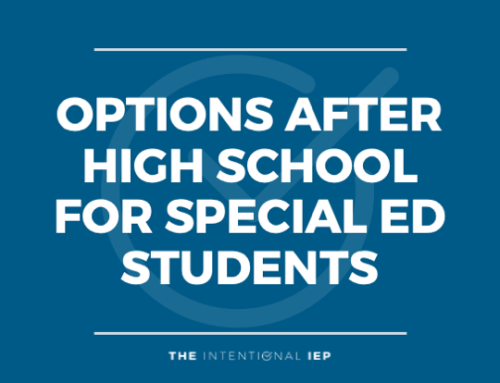No matter how many Individualized Education Programs (IEPs) a teacher has written throughout her career, writing IEPs keeps teachers up at night!
For some teachers, the stress of finding the right words makes sleep impossible. For others, the worry that the services will not be enough is what causes sleepless nights. No matter the reason, IEPs are stressful and often challenging to write.
If you are struggling with your own IEP writing, know that you are not alone! We asked veteran special education teachers what worries them most about IEPs and why.
They are Overlooked
After spending hours on end crafting an IEP that addresses the services and support that students need, it is not uncommon for the documents to be hastily perused, never to be referred to again. Although everything a general education classroom teacher needs to know is contained in the document, the IEP is often overlooked. Not only is this harmful to the student’s progress, but it is also frustrating for the teacher who created the report.
Here’s what general ed teachers need to know about IEPs.
Meeting Anxiety
There is no doubt about it, IEP meetings are stressful! Meeting anxiety is very real and can keep teachers up at night, worrying about how the document will be received. Running the meeting is a similar concern and one that is easy to stress about.
Here are some quick tips for virtual IEP meetings and general tips for before, during, and after an IEP meeting.
Good Enough Goals?
Worried about how your IEP goals stack up against others’ goals? You are not alone. Concern and anxiety about the wording and effectiveness of IEP goals is common amongst special education teachers. “I feel my goals are never strongly written” and “[I worry] that the next teacher will think my goals are poorly written” are common statements from teachers. Many also worry about where to go next with the goals to make sure that students are getting the support that they need to grow and succeed.
Having Enough Data
Collecting enough data on present levels to demonstrate progress and justify the next goals is also a common worry. Between coordinating with general education teachers and doing their own data collection, special education teachers frequently worry that they do not have enough or do not have the right type of data for the IEP or progress report.
Family Support
Every family is unique, and support can look drastically different from one family to the next. Not knowing whether a family will be arguing about a goal or accommodation can create anxiety that is hard to shake until the meeting is over. Building a rapport with the family from the start, before the IEP meeting, can help alleviate some of this concern and create a better working relationship for all involved.
Here’s how to keep families included in the IEP process.
Did I Do Enough?
Above all, teachers worry that the IEPs that they create will not do enough to help students grow to be their best selves. It is that care and concern about the students on their watch that ultimately keeps teachers up at night.

Know that you are not alone, and The Intentional IEP Team is here for you.
Aside from TII membership (Did you hear that TII now offers a trial membership? You can take a look around The Vault to make sure it truly is exactly what you need.), trainings, and resources, is there anything we can do to help you?
Let us know. We’re here for you!





